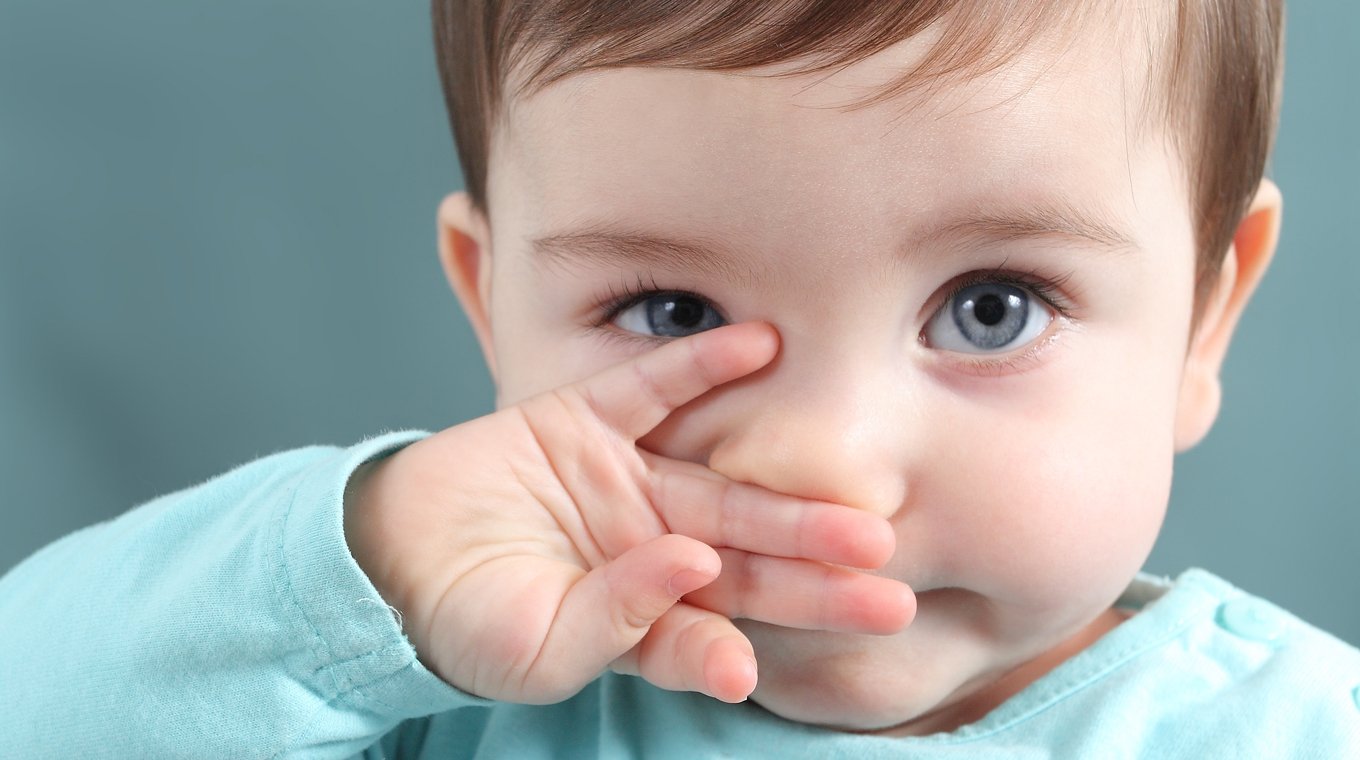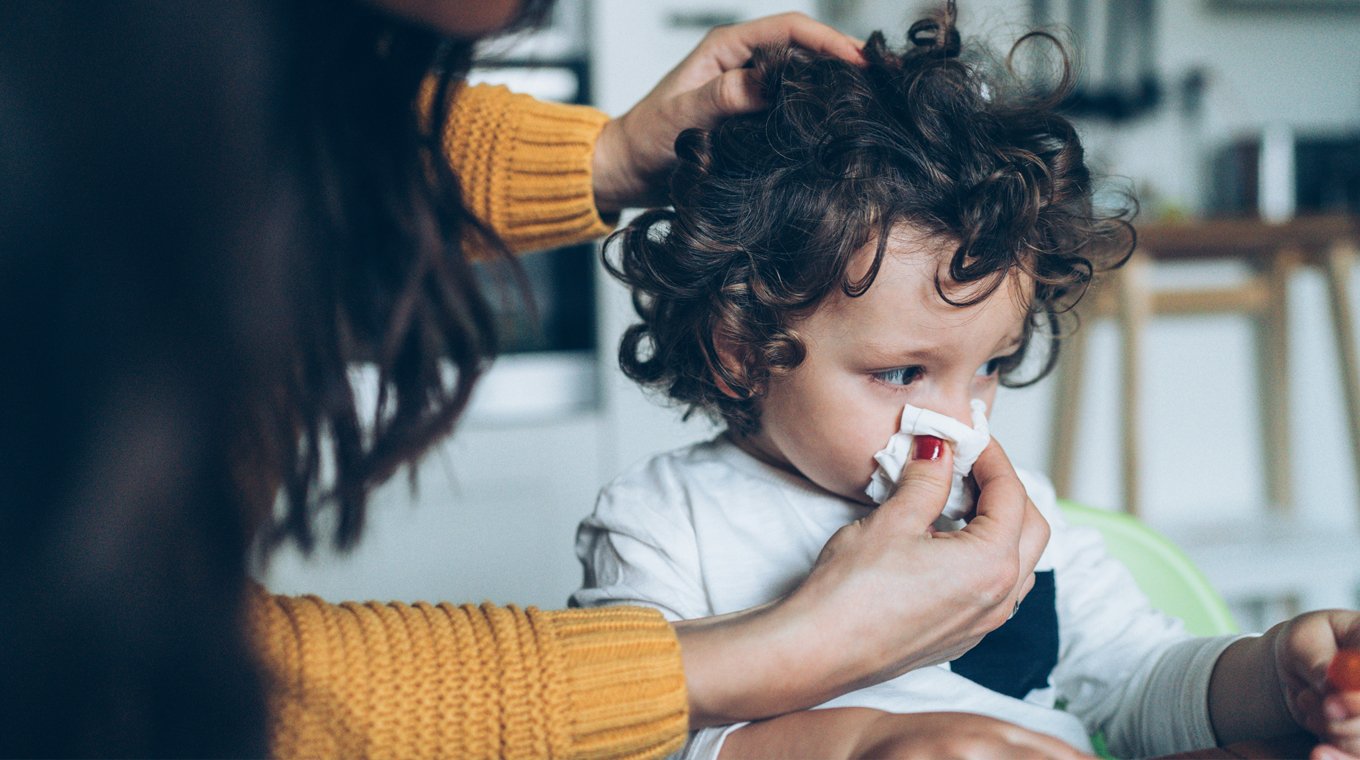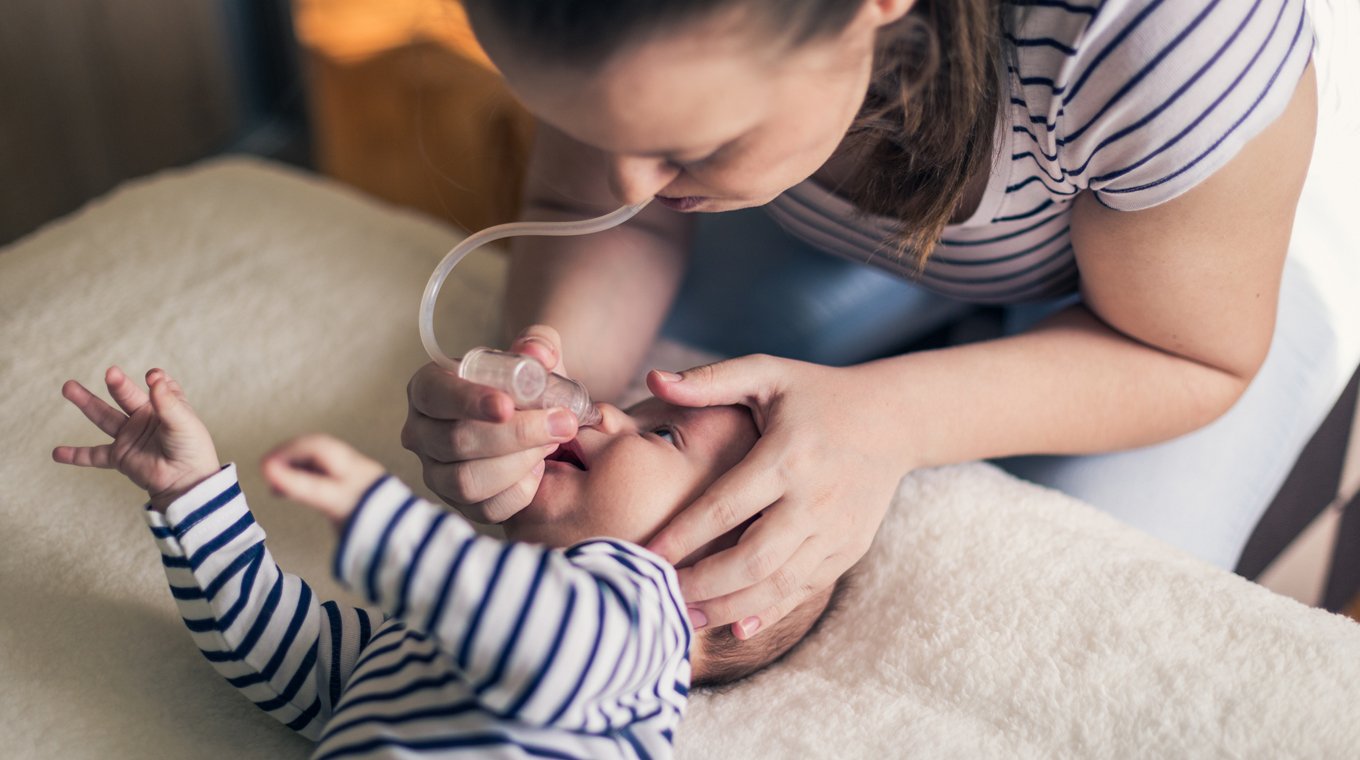
In this article
No one realizes that unstuffing your nose is a skill you must acquire until your baby can’t breathe due to a cold. They’re too little to learn how to blow their nose and the Food and Drug Administration (FDA) doesn’t recommend giving over-the-counter (OTC) medicines for cold symptoms in children under 2 years old. Babies can’t nurse or figure out how to breathe, so it’s up to us adults to unstuff a baby’s nose safely, without OTC drugs.
How to tell if your baby’s nose is stuffed

At some point in your baby’s infancy, they will likely have a cold or get congested. While the signs seem obvious, since we have all had colds, it never hurts to get reminded — especially since some indications and concerns are unique to infants.
Usually, a stuffy nose in a baby will include some of these symptoms:
- Trouble eating or nursing (like pulling off the breast or bottle after a suck or two)
- Thick nasal mucus
- Discolored nasal mucus
- Sniffling
- Coughing
If you also see some of these signs of breathing difficulty, please seek medical attention immediately:
- Rapid breathing (eg: more than 60 breaths per minute)
- Sucking or chest caving in
- Have blue skin, lips, or nails
- Croupy cough (sounds like a seal barking)
- Raspy breaths or wheezing
- Nasal flaring (nostrils widen)
- Nasal and chest congestion
- Hoarse voice
- Fever
Keep in mind, babies tend to breathe rapidly anyway, but it’s the combination of symptoms that is alarming. When my youngest son was 1 year old, he had labored breathing, so I called our advice nurse to make an appointment since it was New Year’s Eve. I wanted to get him checked out ahead of the holiday. After counting his breaths, the nurse bypassed the appointment system and told me to immediately head to the ER. He ended up being admitted for pneumonia.
What not to do if your baby’s nose is stuffed

As adults, we typically reach for decongestants or pharmaceuticals when we’re congested. However, cold medicines can also cause slowed breathing and other dangerous side effects — particularly in infants and young children.
"We strongly recommend that over-the-counter cough and cold products should not be used in infants and young children under 2 years of age,” director of the FDA's Office of Nonprescription Products, Dr. Charles Ganley, said in a statement. “Serious and potentially life-threatening side effects can occur from use of these products."
If your pediatrician does prescribe drugs, make sure to give the correct dosage. Because babies and small children are so tiny, even tiny mistakes can cause great harm. Don’t be afraid to ask the pharmacist or doctor for clarification; it is their actual job to help you.
Tips to unstuff baby’s nose

Thankfully, there are many ways to unstuff a baby’s nose without resorting to medicine.
“The best way to battle congestion is to use saline drops,” Dr. Steph Lee, spokesperson for the American Academy of Pediatrics, told Mom.com. “Use one drop per nostril and then a suction device to get out that mucus. Nasal tube aspirators are great because the suction power is controlled by your breath.”
Nasal tube aspirators — a type of suctioning device where the parent or caregiver uses a mouthpiece to literally suck the mucus out of the baby’s nose — are popular with moms, particularly the Nose Frida. According to Lizz Porter, “It’s gross but it works.”
If you’re worried about hygiene, don’t worry. “I've never had a parent say they got any mucus in their mouth — because there's a filter,” Dr. Lee assured us. “They generally work better for toddlers, once the suction bulb stops working as well.”
A humidifier, steam, or warm bath can also help loosen mucus. Ravelle Worthington, mother of two, mentioned to Mom.com: “The steam from a hot shower helped a ton with getting things flowing.” You can also drape a wet towel over their head as they lean over a humidifier.
Pamela Swear-King brought up blowing into your baby’s mouth. “It’s like giving them mouth-to-mouth. You put your mouth over theirs and blow into their mouth,” she explained to Mom.com. “This will push the mucus out their nose. Just a warning: It can get a bit nasty if you don’t move fast enough.”
While some people use essential oils like peppermint or tea tree oil in a diffuser or mixed with carrier oils to help loosen mucus and open up the airways, it’s imperative to check with a medical professional before exposing your baby to these substances. Essential oils can potentially be hazardous to children and pets so please use caution and common sense.
While the common cold can make normally pleasant babies miserable, remember it will usually pass quickly. Before you know it, your child will be back to themselves and you can all breathe easier.




